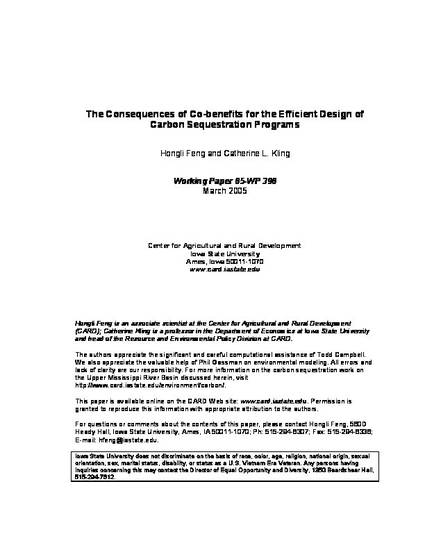
In this paper, we study the social efficiency of private carbon markets that include trading in agricultural soil carbon sequestration when there are significant cobenefits (positive environmental externalities) associated with the practices that sequester carbon. Likewise, we investigate the efficiency of government run conservation programs that are designed to promote a broad array of environmental attributes (both carbon sequestration and its cobenefits) for the supply of carbon. Finally, policy design and efficiency issues associated with the potential interplay between a private carbon market and a government conservation program are studied. Empirical analyses for an area that represents a significant potential source of carbon sequestration and its associated cobenefits illustrate the magnitude and complexity of these issues in real world policy design.
Available at: http://works.bepress.com/catherine_kling/100/

This is a working paper from Canadian Journal of Agricultural Economics, 2005, 53(4); 461-476. Doi: 10.1111/j.1744-7976.2005.00030.x.